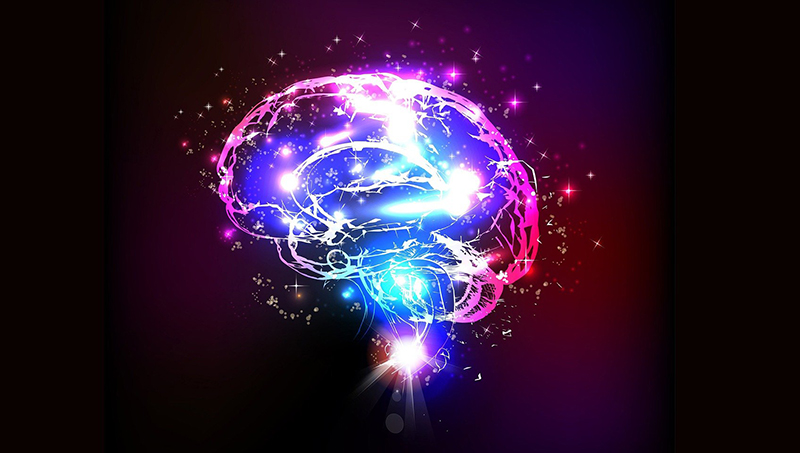Memory is a complex and mind-bending concept. Ask an academic or go online and you’ll learn that human memory is a function of the brain that allows us to acquire, store, retain and recall information. Computers are described in similar terms, and while such mechanical definitions might be accurate, they don’t begin to tell the story of what our memories are made of. Why, for example, can our minds appear to narrate an incident that happened in our childhood perfectly but not tell us what we had for dinner last Friday?
Memory certainly isn’t a perfect faculty, but it’s integral to the experience of being a human. Without it, our lives and our societies as we know them would simply not exist. Its nature and processes have fascinated scientists and, before them, philosophers, for thousands of years, but much is still shrouded in mystery.
In this article, we explore what we know about the age-old question: what is memory?
Making memories
The memory process depends on neurons. These are nerve cells that form key parts of our brain and nervous system, and all that we experience and learn is encoded in their activity.
We tend to think of memory as a process of the retrieval of information from what we envisage as a storage vault. Conceiving of each act of remembering also as a process of reconstruction, however, opens to us the idea that our neurons are doing something much more complex than, metaphorically speaking, bringing us the right document from the right filing cabinet.
When we recall memories, certain neurons fire simultaneously and they create something like a collage in our minds, reconstructing events and experiences from neurons scattered through our brains. The results of this collage, which reconstructs itself in every act of memory recall, are perhaps best captured by the French novelist and essayist Marcel Proust, who observed that “remembrance of things past is not necessarily the remembrance of things as they were.”
Does this mean that our recollections of the past might be unreliable? It might, but it might also mean that our brains excel at filtering out all the mundanity of life – all the featureless bus journeys taken, same old breakfasts eaten, loos flushed, dishes washed – and sustaining the memories that matter, building in our minds the full richness and depth of our personal stories.
Acquisition and storage
But how does the process of memory work?
The neurological processing of an event such as learning and remembering a new fact begins with your sensory experience of it. Your senses dictate what you perceive around you, and your capacity to remember these sensory experiences – whether related to seeing, hearing, smelling, tasting, touching or feeling – can be vivid. As your sensory perceptions are transmitted to your brain, the process of interpreting and encoding them is done by a part of your brain called the hippocampus.
At this point, your brain decides how to record this new information, analysing it and either recording it via neurons as information or dismissing it as unimportant. As new memories are formed, neurons form new links, known as synapses, with other neurons, connecting information in your brain in a kind of electrical circuit. Your brain can create trillions of synapses, each of which participates in the reconstruction of information into memories. They allow memories to be held, unconsciously stored, waiting to be called upon by your conscious mind.
Recall
While the acquisition and storage of information is an unconscious process, its recall is dictated by your conscious mind. In the act of thinking, you reach out to your unconscious mind and your neurons transfer the data to your conscious mind via the linking synapses.
What you remember will depend on your interpretation of the initial sensory perceptions, how hard you were concentrating and the conditioning effects of subsequent memory processing. If you have the television on but are looking at your phone at the same time, for example, you won’t remember what you saw on the television as clearly and accurately as if your phone was in your pocket!
Types of memory
Not all memory is the same. How you record it and recall it depends on the nature of the experience.
Neurologists believe memory falls into two broad categories: short term and long term. Think of short-term memory as your “working” mind – what you are thinking about at any given moment. Depending on the individual, roughly 5 to 10 items of information can be held in short-term memory simultaneously. This information is good for around 30 seconds.
Long-term memory is the material you keep indefinitely, including significant events and experiences, names, faces and dates. It also holds learnt skills such as driving, which have become unconscious through repetition, or learning acquired as a baby.
Remembering and forgetting
Memory is an incredible faculty. It is so vital to our shared existence, and so individual, with our memories supplying each of us with our own unique perspective on and interpretation of the world around us.
The process of making memories is totally natural to us, yet our understanding of it is still in its infancy. With each passing year, though, humans learn more about what our memories are made of, and, at the same time, we learn more about memory loss. With age, our ability to recall the past declines, and while mild memory loss may just be a normal part of the aging process, neurological disorders such as Alzheimer’s disease lead to more serious decay of the ability to make, process and access memories.
Tips for protecting your memories
“We will all lose our memory one day. You can’t insure your memory … but you can insure your memories … Write them down.”
When memories are lost, they can be lost for ever, but there are things you can do to preserve and boost them. Good diet, regular exercise and getting enough sleep are vital, and living an active and sociable life will help to keep your brain in great shape.
You can also put your recollections and experiences down on paper. This will help to solidify them in your memory and allow you to look them up easily in the future. Not only will you be able to relive your experiences again, but when the day comes, as it must, that all the memories in your brain are lost, you will have ensured that they live on.
Writing your life story is a wonderful way to do this. You will preserve your memories not only for yourself but for generations of your family to come. There are just so many benefits to telling your story.
If you’ve ever thought about writing your memoirs, you’ll know it can be a daunting prospect. Where to start? What to put in? What to leave out? That’s where LifeBook Memoirs, the world’s leading bespoke memoir and autobiography company, can help. Our team of experts will work with you to create a beautiful book that you and your family will cherish.
Contact us today to find out more about starting your memoirs.
Written by Kate Parry, LifeBook Memoirs editor


